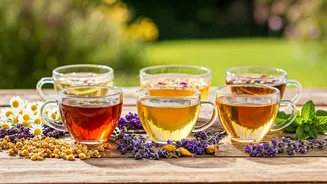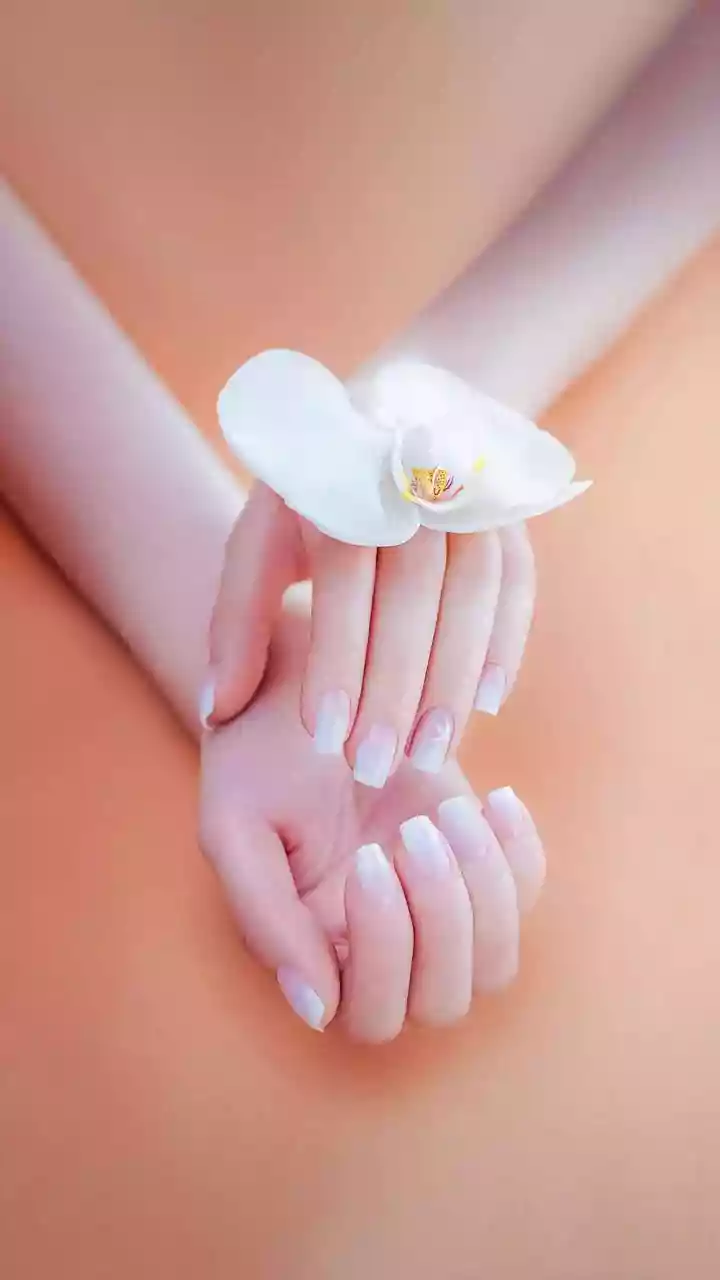Introduction to Herbal Teas
Herbal teas have long been cherished for their medicinal and cosmetic properties. Unlike traditional teas made from the Camellia sinensis plant, herbal
teas are infusions of herbs, spices, flowers, and fruits, often caffeine-free. These teas offer a wealth of nutrients, antioxidants, and compounds that can benefit the body in various ways, particularly for skin and hair health. Many herbs possess anti-inflammatory, antioxidant, and detoxifying properties that help combat issues like acne, dryness, and dullness, contributing to a radiant complexion and strong, healthy hair. Incorporating herbal teas into your daily routine is a simple yet effective way to nurture your beauty from within, supporting the body's natural processes and promoting overall well-being. Furthermore, the ritual of brewing and enjoying herbal tea can be a calming and mindful practice, enhancing the overall experience of self-care.
Chamomile's Calm Benefits
Chamomile tea, renowned for its calming effects, can significantly contribute to skin and hair health. Rich in antioxidants and anti-inflammatory compounds, it helps soothe irritated skin and reduce redness. Drinking chamomile tea can ease stress, which indirectly impacts skin health, as stress can trigger breakouts and worsen conditions like eczema. For hair, chamomile is known to add shine and can lighten hair naturally. To prepare, steep 1-2 teaspoons of dried chamomile flowers in a cup of hot water for 5-10 minutes. Strain the tea and enjoy. You can also use cooled chamomile tea as a hair rinse to enhance shine and soothe the scalp. Chamomile’s gentle properties make it a versatile choice for anyone seeking a natural boost to their beauty regimen, offering both internal and external benefits.
Rosehip's Vitamin C Power
Rosehip tea is a powerhouse of Vitamin C, a crucial nutrient for skin health. Vitamin C is a potent antioxidant that combats free radicals, preventing premature aging and protecting the skin from environmental damage. It also plays a key role in collagen production, leading to firmer, more elastic skin. For hair, adequate vitamin C intake supports healthy hair growth and strength. Rosehip tea contains other beneficial compounds, such as lycopene and flavonoids, which contribute to its anti-inflammatory and antioxidant effects. To prepare rosehip tea, steep 1-2 teaspoons of dried rosehips in a cup of hot water for 10-15 minutes. Strain the tea before drinking. Regular consumption of rosehip tea can improve skin texture, reduce fine lines, and contribute to a healthy, vibrant complexion and hair. The tea's slightly tart flavor adds a refreshing element to the daily routine.
Hibiscus for Antioxidants
Hibiscus tea, known for its vibrant color and tart taste, is packed with antioxidants, which help protect the skin and hair from damage caused by free radicals. These antioxidants also contribute to the overall health and vitality of the body. Drinking hibiscus tea can help improve skin elasticity and promote a more even skin tone. For hair, hibiscus is known to stimulate hair growth and prevent hair loss. The tea’s high vitamin C content further supports collagen production, promoting healthy skin and hair. To prepare, steep 1-2 teaspoons of dried hibiscus flowers in a cup of hot water for 5-10 minutes. Strain the tea and enjoy. Hibiscus tea's benefits extend beyond beauty; it also supports heart health and overall wellness, making it a great addition to a holistic health plan. Regular intake contributes to a brighter complexion and stronger, more resilient hair.
Green Tea’s Skin Defense
Green tea is celebrated for its antioxidant properties and its beneficial effects on the skin and hair. Rich in catechins, green tea helps protect the skin from sun damage and reduce inflammation. It can help reduce redness and improve skin conditions such as acne and eczema. For hair, green tea can stimulate hair growth and add shine. The antioxidants in green tea also help combat free radicals, slowing down the aging process and promoting a healthy complexion. To prepare green tea, steep 1 teaspoon of green tea leaves in hot (but not boiling) water for 2-3 minutes. Strain and enjoy. Green tea can also be used topically as a toner or hair rinse for added benefits. Incorporating green tea into your daily routine can provide a powerful defense against environmental stressors and contribute to glowing skin and healthy hair.
Peppermint's Refreshing Touch
Peppermint tea is known for its refreshing and invigorating properties. While primarily known for digestive benefits, peppermint tea can also indirectly benefit the skin and hair. The tea's anti-inflammatory properties can soothe skin irritations and reduce redness. It can also help regulate oil production, which is beneficial for those with oily skin or acne. For hair, peppermint tea can improve scalp health, contributing to healthier hair growth. To prepare, steep 1 teaspoon of peppermint leaves in hot water for 5-7 minutes. Strain the tea and drink. The cooling sensation of peppermint can also provide relief from skin irritations. While peppermint's direct impact on skin and hair may be less pronounced than other teas, its overall wellness benefits and ability to reduce stress contribute to the body’s natural beauty processes. Integrating peppermint tea into your routine can lead to a refreshed, revitalized feeling, which often reflects in a clearer complexion and healthier hair.



















